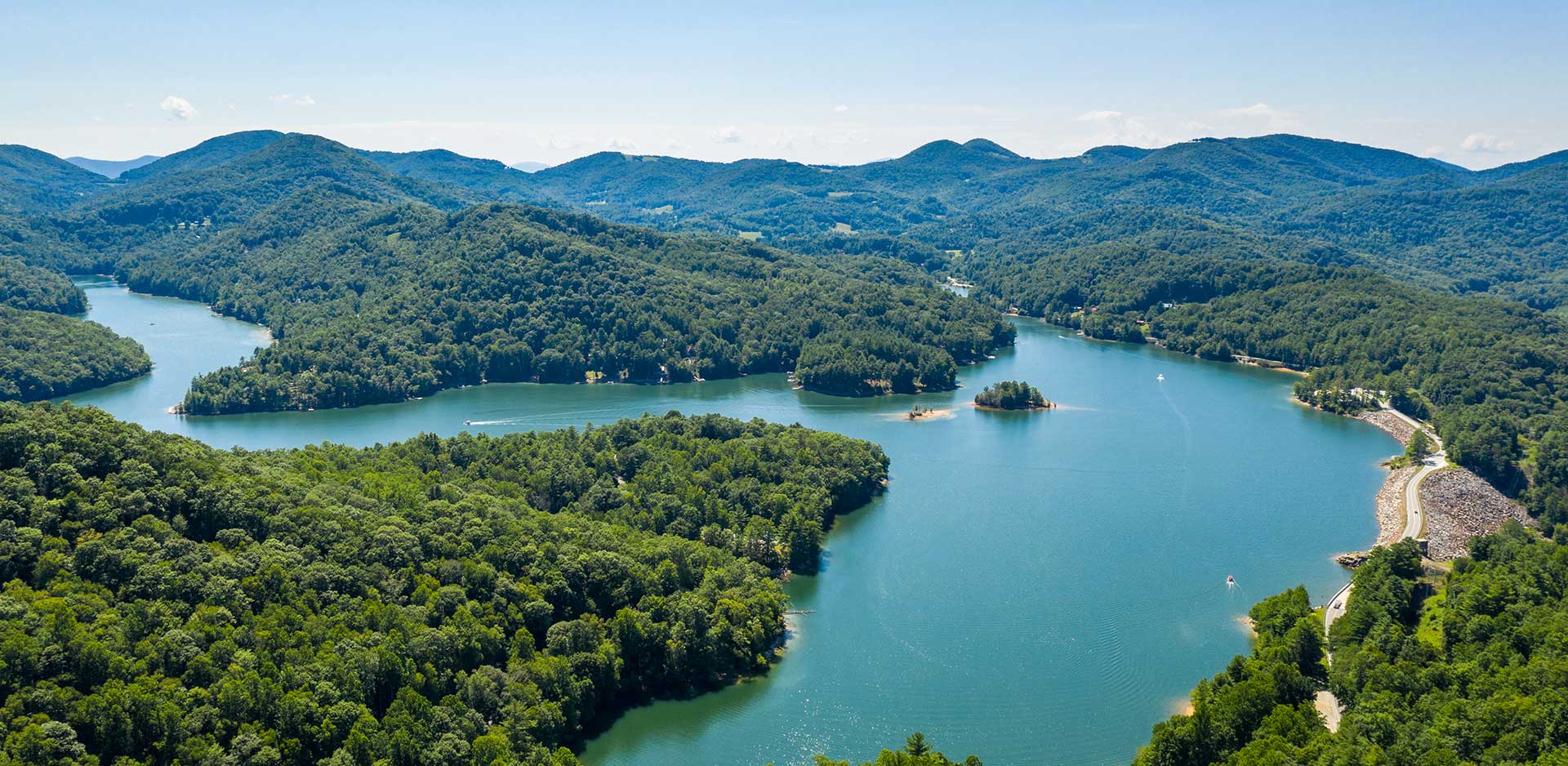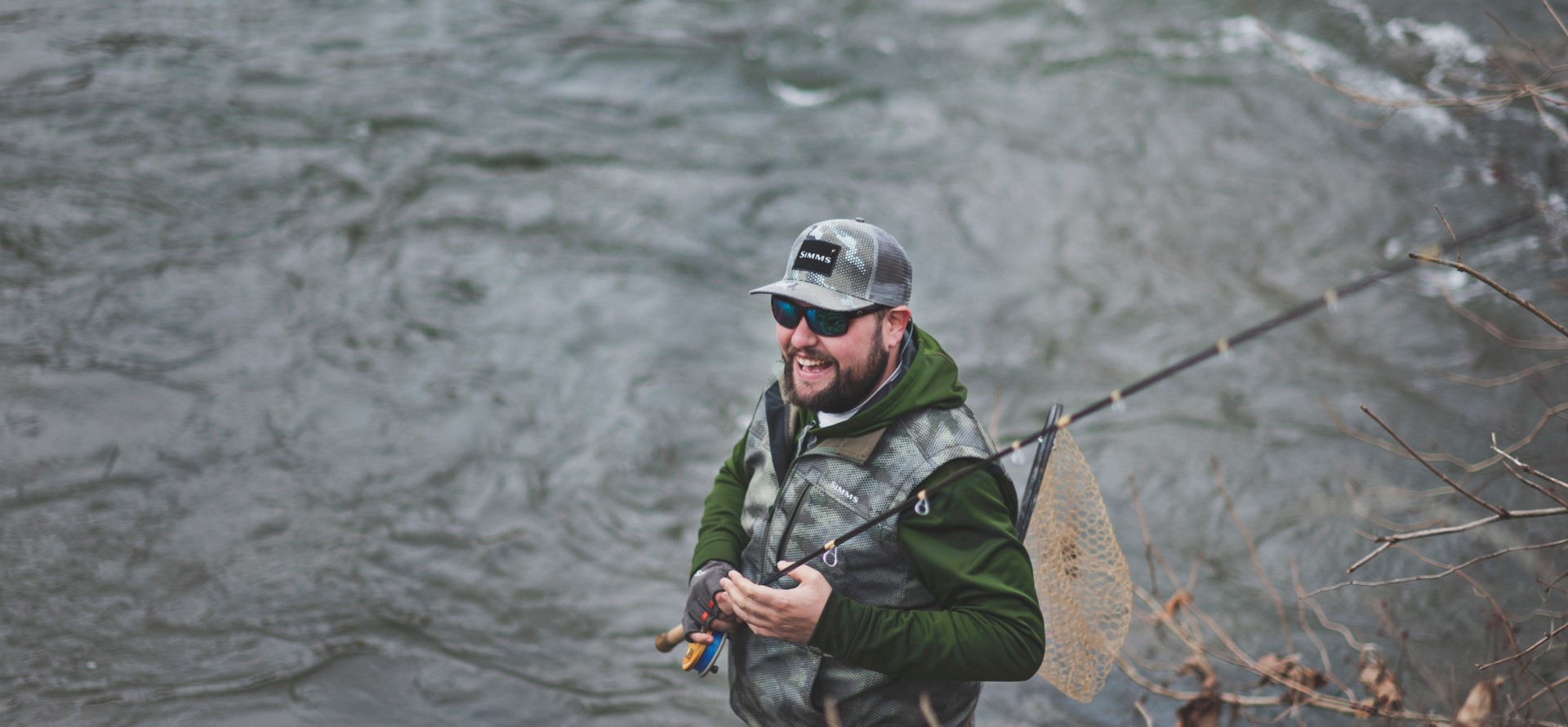CHECK OUT OUR VACATION RENTAL SPECIALS
 VIEW SPECIALS
VIEW SPECIALS

Of course, the first thing you will want to do whether you are going fly fishing solo or going on a guided fishing trip in North Carolina is to ensure that everything is being done legally. In North Carolina, fishing licenses are required. In-state or out-of-state visitors should expect to pay a fee ranging from $10-$40. To figure out what kind of fishing license you’ll need, you can ask for a North Carolina wildlife handbook, which are available to view anywhere you can buy a fishing license. In Cashiers, NC, Brookings Anglers is the go-to spot for fishing licenses and advice on what streams and rivers to fish in once you get your license. Taking a look at the wildlife handbook will also give you specifics on what you are and are not allowed to do on your solo or guided fishing trip in North Carolina.
Let’s start with the basics for any beginners reading this. Whether you go on a solo or guided fishing trip, you’ll need to be prepared to supply your own gear or ask the guide you’re going with what your options are for gear supply with them.
Here is a list of the basics you will need:
These are just a few items you’ll need to start with. Brookings Anglers in Cashiers is one of the best NC fly shops around and they can help you figure out which type and brand are best.
If you’re interested in fly fishing, Brookings employee, Andrew Watson, has been fly fishing for 18 years and guiding fly fishing in Cashiers for six years. He recommends bringing a fishing net to help you land larger fish, as you never know when you might catch that big fish you’ve been waiting for.
“One common misconception about fly fishing is that it’s difficult to learn,” said Watson. “In reality, anyone who is willing and interested to learn can be taught the basics in under an hour and can start catching fish.”
For the organized fisherman or fisherwoman, a vest can be a helpful purchase as it helps you keep your gear organized and kept together as you wade through the water.
The main thing you need, after your gear, is a little bit of patience, and a willingness to try something new for your fishing getaway in NC.
This is a tricky question to answer, as it all truly depends on your level of experience. Certain rivers and streams are easy for beginners, and some should only be left to the more experienced fly fisherman or fisherwoman.
Panthertown Creek is just one creek you can go to that has several feeder creeks you can venture off to. Caney Fork and Scott Creek are also two creeks in Jackson County, NC that are near Brookings Anglers. These are good options for beginners as well.
The Little Tennessee River near Franklin, NC is a great choice for smallmouth bass fishing. If you are up for a trip to Asheville, the Lower French Broad River also boasts smallmouth bass and they can be caught year-round. Both rivers are best explored via drift boat rather than wade fishing, as you can cover more ground.
This is where a guided fishing trip in North Carolina can be helpful. Even if you are a more experienced fly fisher, you may not know the area or specific fishing locations very well. Brookings Anglers provides wade fishing and float trip guided tours for up to three people at a time, to make sure each person gets the individual instruction and tips to have a successful fly fishing trip.
Western North Carolina is a unique place for your solo or guided freshwater fishing trip. There are over 3,000 miles of river open to the public for recreation. This means that no matter where you go, you can go fishing in some of the best rivers on the east coast.
Wild trout is one of the most popular fish in the Blue Ridge Mountains of North Carolina. The most common fish you’ll catch in area rivers are Appalachian brook, brown and rainbow trout. Appalachian brook trout is particularly unique, as it is the only native trout in Western North Carolina. The Appalachian brook trout is coming close to endangerment due to stocking of non-native trout, but you can still find them flourishing in many rivers and streams around the plateau.
You can expect the mountains of North Carolina to have an abundance of options for your next trout fishing trip or guided fishing trip in North Carolina.
By now, you know that we think a lot of the crew at Brookings Anglers. We work in very close proximity to them and can vouch for them as a credible source for your future fishing trips. We highly recommend them for their expansive knowledge of fishing.
If you want a more in-depth lesson on fly fishing in North Carolina, Brookings offers a full day of fishing school, with gear and lunch provided. Of course, you’ll need to make sure your fishing license is squared away before you go. Fishing school is a great way to dive in (but maybe not literally).
Before you get too excited and leave our site to go book your next fly fishing trip, let us send you off with a few more helpful tips. We want you to land that big fish!
0 COMMENTS